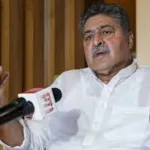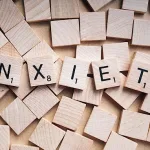There was once a rhythm to life, a slow music that guided our days. We knew the virtue of waiting—the slow ripening of fruit, the steady unfolding of seasons, the quiet discipline of hope. Dawn arrived not as a jolt, but as a gentle promise, and people carried within themselves the capacity to endure, to hold, to let life reveal its meaning over time. Today, that rhythm has quickened into a feverish beat. The patient pulse of yesterday has been drowned by the incessant drumming of immediacy.
We live in an age where the world fits in the palm of a hand, where distance has collapsed into a screen, and where desire travels faster than thought. The digital clock no longer marks the passing of hours but rather fragments of seconds in which everything must happen. The very act of waiting feels unnatural now, almost like a punishment. What once was considered strength—the ability to endure delay—is now seen as weakness, even failure.
Technology has promised us convenience, and convenience has quietly taught us restlessness. If a video takes more than a moment to load, irritation simmers. If a message is not answered instantly, suspicion arises. The mind, conditioned by this rhythm of immediacy, has forgotten the art of stillness. The more swiftly we feed our desires, the more quickly they starve us again. Satisfaction slips from our grasp like water from cupped hands, leaving us thirstier each time.
Social media has sharpened this hunger. The scroll never ends; the parade of curated lives never stops. Each notification brings a flicker of delight, yet fades into emptiness almost instantly. We chase the next one, and then the next, as though validation were air itself. Patience cannot survive in such an environment—it is an anachronism, a relic of another world. Instead, we live in perpetual reaction: swift judgments, quick anger, fleeting pleasures.
And with this, something essential has been lost—empathy. For empathy is not born in haste; it is the fruit of listening, observing, waiting. It demands time, which we no longer grant one another. Conversations have become skims across the surface; we no longer linger in the depths of another’s silence or pain. The pace of life has eroded our capacity to pause before we judge, to forgive before we condemn.
The consequences reveal themselves everywhere. In homes, tempers flare at the smallest provocation. On roads, horns rise like war cries. In politics, division thrives because impatience cannot tolerate compromise. Our collective breath has grown shallow, our tolerance for difference fragile as glass. Behind the glitter of progress, there is a society frayed at the edges, a humanity restless within itself.
The pressures of modern living intensify this fragility. Work consumes our hours, competition gnaws at our peace, economic insecurity tightens its grip. We run faster, achieve more, yet feel emptier. Patience finds no soil to take root when every moment is weighed against efficiency and profit. The race has no finish line, only exhaustion. And in exhaustion, anger finds easy entry.
Inequality sharpens this impatience into resentment. The gap between privilege and struggle stretches wider, and those left behind grow restless, their tolerance worn thin. Communities fracture, identities harden, and politics exploits these wounds, feeding on outrage because outrage is immediate, while healing requires time. The old values of humility, respect, and endurance seem to vanish beneath the glare of instant opinion and reaction.
The media, sensing our restlessness, thrives on it. News no longer informs slowly and carefully; it ignites like firecrackers, designed to shock, to enrage, to hold attention. Anger sells, fear binds, division entertains. Each headline is bait, each broadcast an invitation to react before we reflect. And so the middle ground—the place where patience dwells—disappears into silence, drowned by the shouts of extremes.
The very architecture of our digital world amplifies this. Algorithms feed us more of what we already believe, locking us in echo chambers where impatience with the “other side” grows unchecked. We no longer wait to understand; we only wait to retaliate. Every disagreement feels like battle, every criticism an insult that must be avenged.
Yet beneath this social turmoil lies a quieter, more personal erosion. The human mind was not designed for constant stimulation. We are overwhelmed—by information, by choice, by relentless exposure to the lives of others. Anxiety, depression, and stress rise like unspoken epidemics. In such states, patience becomes almost impossible. When the mind is restless, the heart is quick to anger. The ancient reflex of fight-or-flight, once reserved for mortal danger, is triggered daily by emails, deadlines, or disagreements.
What worsens the crisis is that we were never taught to manage these storms. Our schools measure intelligence in grades, but rarely in resilience. We train children to calculate, to memorize, to compete—but not to wait, to listen, to endure disappointment. Emotional intelligence, which should be at the heart of education, is neglected, and so generation after generation learns to sprint but never to pause.
This cannot last. A world without patience is a world without balance. And yet, hope remains. For the virtues we have buried are not gone forever; they wait like seeds in dry earth, needing only intention to bloom again.
Patience, if we dare to rediscover it, can become an act of quiet rebellion. To wait in an impatient world is to reclaim sovereignty over one’s soul. It is to say: not every desire must be fed at once, not every anger must be expressed, not every answer must be immediate. Patience allows life to unfold, and in its unfolding, meaning appears.
Tolerance, too, must be rekindled. It asks us to see beyond ourselves, to allow space for difference without fear. It is not weakness but wisdom—the recognition that humanity is a mosaic, and no single piece holds the whole picture. Without tolerance, empathy cannot survive; without empathy, no community can endure.
And empathy itself is the medicine for our fractured age. To pause long enough to feel another’s sorrow, to listen without haste, to share in the invisible burdens others carry—this is the path back to our common humanity. In a world drowning in noise, empathy is the silence that heals.
Perhaps the lesson lies in the dawn itself. Before the day begins its frenzy, there is a quiet stillness when the mist lingers, when light rises slowly across the fields. That is patience embodied: gentle, gradual, unhurried. If we could learn again to honor such moments, we might restore what has been eroded.
The modern world dazzles us with speed, but speed alone does not make a life. Strength lies not in racing through, but in enduring with grace. Patience, tolerance, and empathy are not luxuries of another time; they are necessities for the survival of any society that hopes to call itself human.
The dawn of a gentler world is possible, but it requires us to step out of the race, even for a moment, and remember the music of waiting. Only then can we hear, beneath the noise, the rhythm that once held us together.
(Author is RK Columnist and can be reached at:[email protected])






